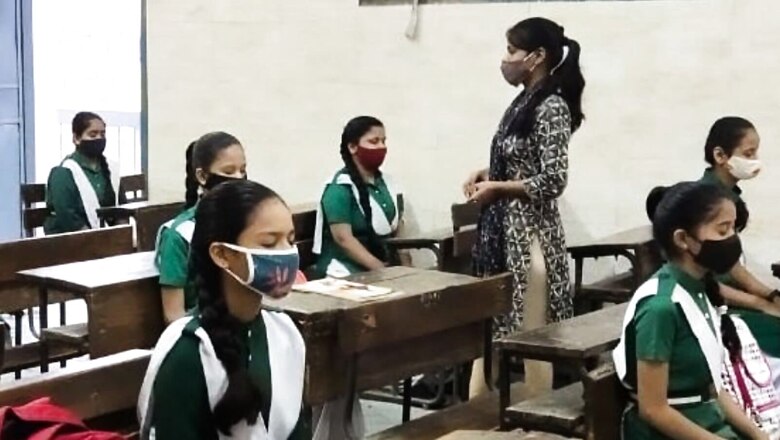
views
“The best thing about being a teacher is that it matters. The hardest thing about being a teacher is that it matters every day.”
-Todd Whitaker
Following the Covid-19 pandemic, education systems across the world have been thrown into unchartered territory by being forced to shift from traditional methods of classroom teaching to online education. The very basics of education have undergone an unfathomable change from experiential learning and interactions in a social environment to learning alone in front of a device.
Teachers have been caught unprepared in the midst of this drastic yet important transition, and for many, this shift has been extremely challenging, both professionally and personally.
Professional challenges of online classes
Although using a mobile phone or the Internet at a personal level is common, using this for online classes is completely new for most teachers. Teacher training is largely focused on delivery in a physical environment as a result of which most teachers do not have any training in how to deliver online classes, or prior experience with creating digital content. When many private schools started using platforms such as Zoom and Microsoft Teams for online classes, teachers were required to rapidly upgrade their skills and push to creative limits and deliver in their classes.
Several teachers describe difficulties of providing an online experience, equivalent to that of a classroom setting. A major challenge is absence of cues from students, like eye-contact and body language, which provide feedback on teaching effectiveness. High expectations from school management, as well as parents, who are now able to observe every class that their child attends, further adds to daily stress experienced by these teachers.
Most are not tech savvy, seasoned online speakers. Managing virtual classrooms whilst dealing with connectivity issues, and pressure to complete syllabi in the current environment of uncertainty, requires levels of multitasking that can be incredibly demanding and are definitely new to the profession.
Personal challenges faced by teachers
Working from home has been difficult for many professionals, but in particular for teachers who have been forced to reinvent their entire work routine due to Covid-19 pandemic. When schooling moved online, very few schools provided students and teachers with the infrastructure or support they needed to conduct online classes. Issues such as limited availability of devices, poor Internet connection, frequent power cuts and lack of space at home, were among the many difficulties faced by teachers.
Over the past few months several reports from across the globe show teachers are experiencing higher levels of psychological distress due to increased workload post Covid-19. This not only has an impact on the teachers but can also negatively impact quality of teaching and also the students.
Women constitute a large part of the teaching workforce. Juggling demands on the home front, along with the increased workload of online classes, is a cause of stress for teachers. A lot of teachers are experiencing increased anxiety, stress, fatigue and relationship difficulties. Several are struggling to manage household chores, family responsibilities and child care along with the additional pressures of delivering online classes.
Supporting mental health of teachers
Teachers play a critical role in society in not only imparting knowledge but inspiring young minds and shaping future generations. During these pandemic times more than ever, it is essential that teachers are provided with adequate resources and support whilst they are working.
At a professional level, local and national resources have emerged for content development and delivery. UNESCO has also recently launched guidelines to support mental health and wellbeing of students. However, the need for mental health support of teachers during these crises times has largely remained ignored.
As uncertainty about the Covid-19 situation and parental hesitation to send young children back to school continues, we may see more schools opening in a hybrid format. Teachers will be forced to adapt to this new format of working which will add additional work stress. It is important to provide them with adequate infrastructure for online delivery of classes as this can help them in their daily work. Equally important is the requirement for systems in schools and resources to support their socio-emotional wellbeing given that teachers like many other professionals are juggling multiple roles during these times. Let us not ignore the minds that shape young minds every day.
(The views expressed in this article are those of the author and do not represent the stand of this publication.)
Read all the Latest News, Breaking News and Assembly Elections Live Updates here.

















Comments
0 comment